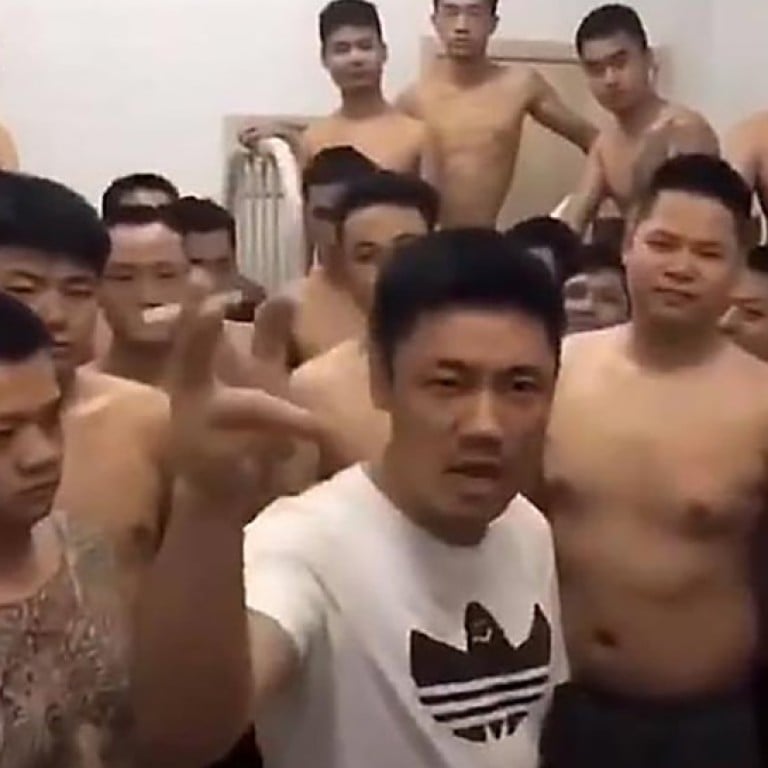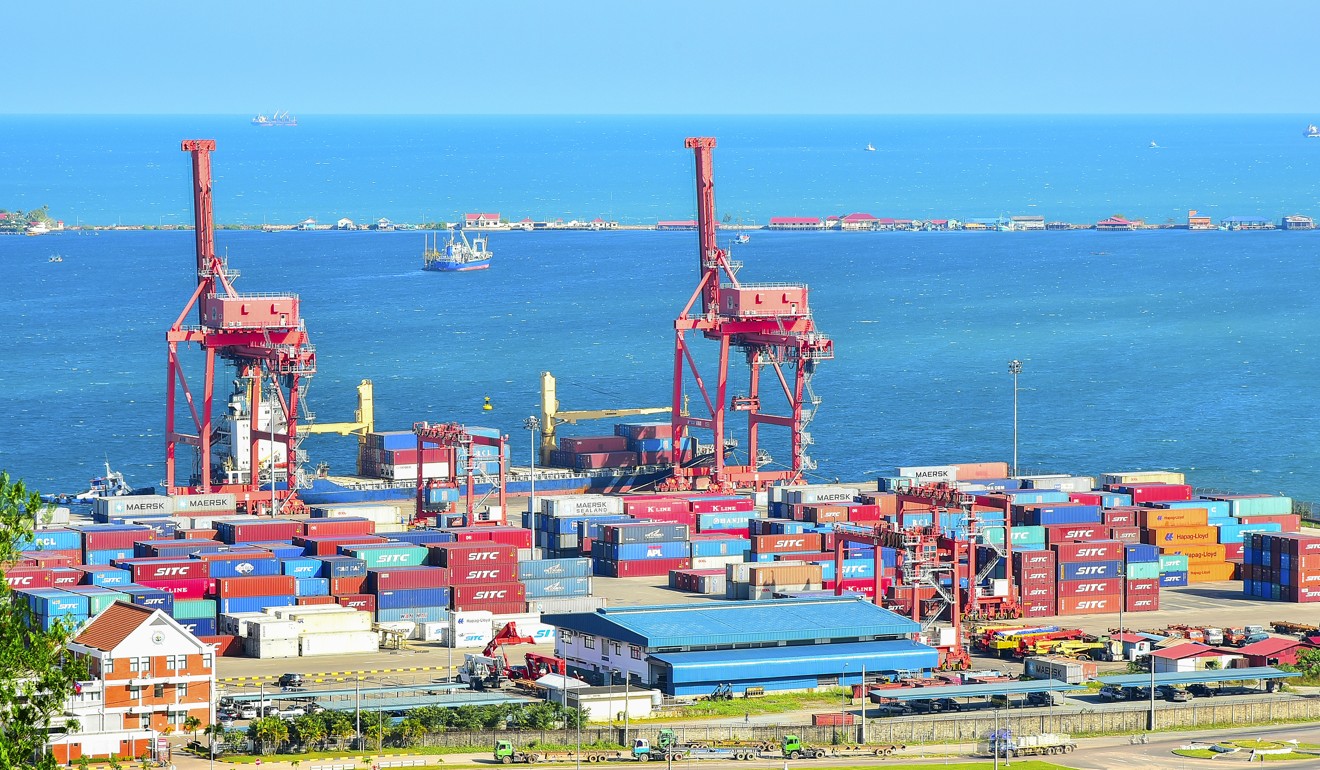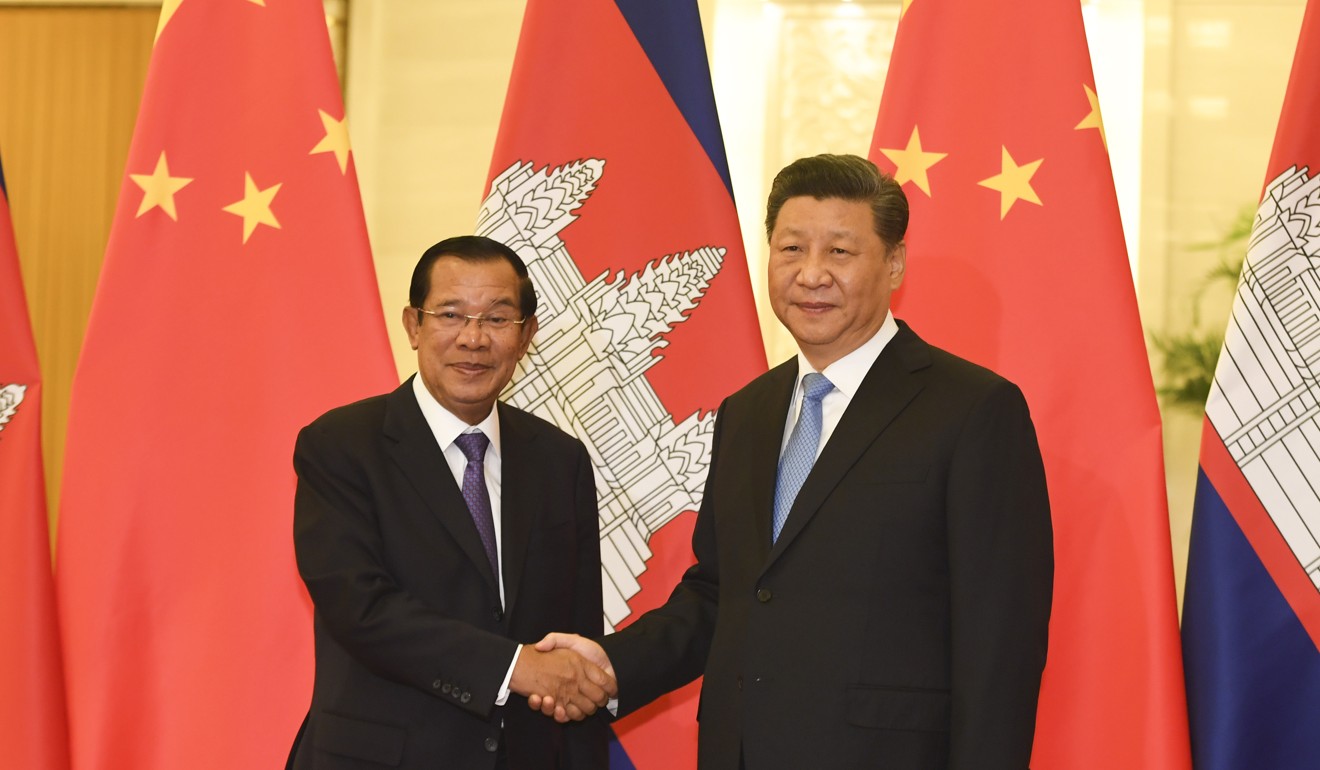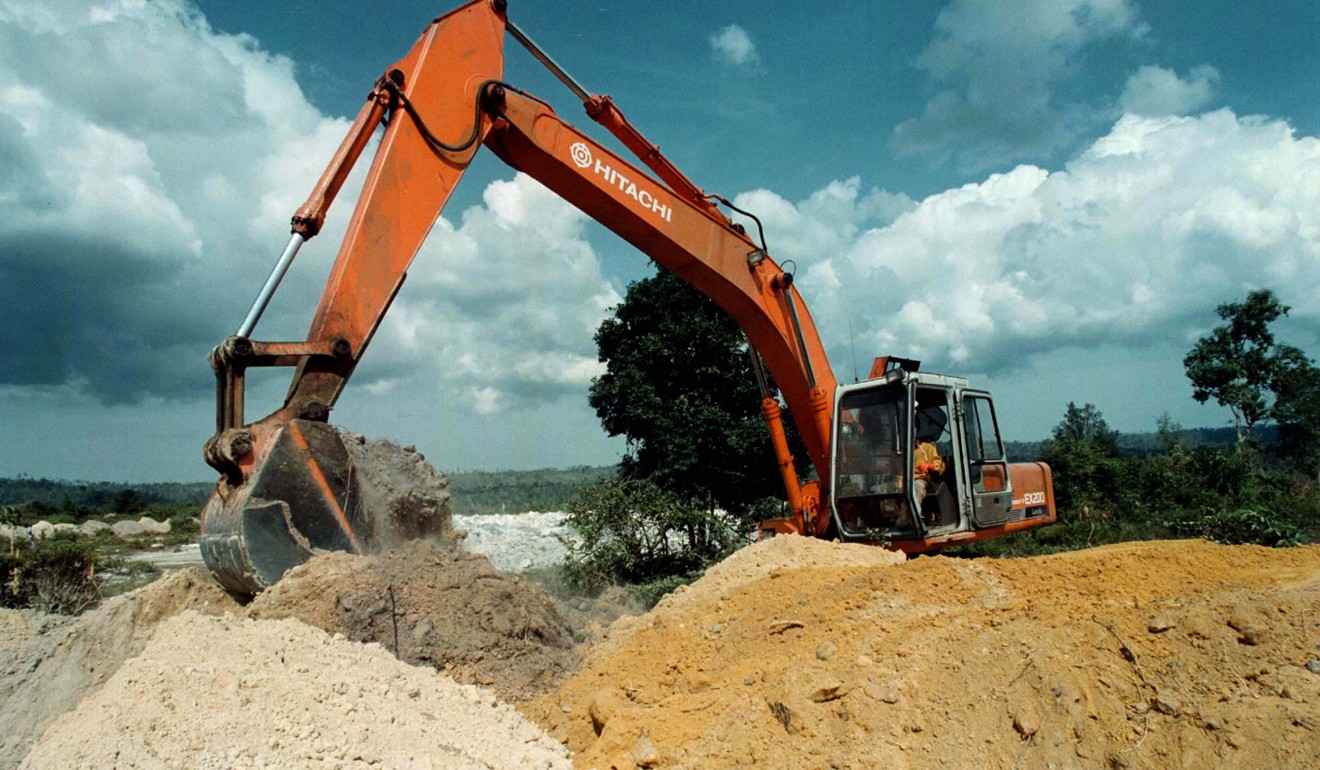
Chinese gang threatens chaos in Cambodian province as rift deepens between locals and new arrivals
- The video was released soon after a Ministry of Interior report identifying Chinese nationals as the most criminally active foreigners in Cambodia
- In recent years, Chinese developers have built more than 100 casinos and dozens of hotels and resorts in the province
The Chinese embassy in Cambodia is investigating a video of a gang, supposedly from Chongqing, threatening to seize control of the city of Preah Sihanouk, the capital of Sihanoukville province.
In recent years, Chinese developers have built more than 100 casinos and dozens of hotels and resorts in the province, situated on Cambodia’s southwestern coast.
In a video circulated on Facebook, a Chinese man speaks to the camera while surrounded by about 20 other Chinese men, some of them sporting tattoos and cheering.
“Kampong Som, in the next three years, whether it will be safe or chaotic is under my control,” the leader declares in Mandarin, referring to Preah Sihanouk by its alternative name.
In a statement on its website on Sunday, the Chinese embassy said it would coordinate its investigation with the Cambodian police.
“We believe we will solve this case soon and will issue an update when there are new developments,” it said.
The embassy did not respond to requests for further comment.
The video was released on Sunday, just days after a May 7 report from the Ministry of Interior identifying Chinese nationals as the most criminally active foreigners in Cambodia. In the first quarter of 2019, 341 foreigners were detained, 241 of whom were Chinese. Vietnamese were next most likely to be arrested, with 49 detentions.
On May 6, the murder of another Chinese man was caught on video. The footage shows a man entering a car before his dead body is later dumped out of the same vehicle into the middle of the street in broad daylight. Two other Chinese men were subsequently arrested for his murder.
As of last year, there were more than 16,000 Chinese nationals with work permits in Cambodia, many working on tourism and infrastructure projects in Sihanoukville and neighbouring Koh Kong province where an airport and deep water port are being built. However, the Immigration Department estimated there were 78,000 in Sihanoukville alone, many without permits.

Supporters claim the development projects will bring jobs and economic benefits but critics have cited environmental damage, skyrocketing property costs leading to illegal evictions and land disputes, and rising crime. In particular, tensions have deepened between locals and newly arrived Chinese nationals.
Cambodian strongman leader Hun Sen has sought closer ties with China while overseeing a crackdown on political opposition and the media.
In my opinion, the Chinese nationals who come don’t seek to learn our laws
Last month, Cambodia and China agreed at least nine new deals as part of China’s Belt and Road Initiative, signalling Phnom Penh’s shift away from the European Union as its major development partner. Nonetheless, signs of unease over China’s influence have begun to show, even within the ruling party and largely government-controlled media.
The chief of a commune in Sihanoukville – an official elected by voters in the subdistrict – complained about Chinese nationals committing crimes.
“It affects the locals when they drive cars very fast and don’t respect traffic laws,” he said, having asked to remain anonymous due to concerns about his safety and job security.

He also criticised unsafe and environmentally damaging construction, insisting: “I think the government has to push them to respect the law, Cambodian traditions and practices.”
In January, Sihanoukville provincial governor Yun Min wrote to the Cambodian interior minister to highlight rising crime, the effect of inflated property prices on local Cambodians, and the saturation of Chinese labourers in the construction sector.
“It provides the chance for Chinese who are part of the mafia to do criminal [activities],” he wrote.
How Chinese money is changing Sihanoukville – ‘No Cambodia left’
Last week, the normally pro-government Phnom Penh Post published scathing comments from one commune police chief in Phnom Penh.
“In my opinion, the Chinese nationals who come don’t seek to learn our laws,” the paper quoted Thong Mardy as saying.
“The Chinese nationals who come here were mostly criminals in China who have poor track records … were we to implement our country’s legal measures, there’d be no pardons for them.”

The Phnom Penh Post came under new, pro-government ownership in May 2018 and has since toed the government line. It has nonetheless published several articles critical of Chinese development.
One piece in September 2018 said the influx of Chinese tourists had deterred Cambodian tourists who can no longer afford to visit.
The Fresh News website and Khmer Times, outlets regarded as even more pro-government, frequently report on Chinese crime and misbehaviour.
Hun Sen counts on China as he cracks down in Cambodia – has he miscalculated?
Occidental College political scientist Sophal Ear said Prime Minister Hun Sen could face a significant backlash if he continues to give away Cambodia’s “crown jewels”, referring to reports of further development in Siem Reap.
“I think [the situation in] Sihanoukville is so egregious that suppressing dissent is just another way of losing what little popular support the ruling party has at this point,” Ear said, referring to the effects of development on Cambodians living there.
Far from scaling back, however, Hun Sen seems determined to press ahead, having promised a second, even larger phase of development in Sihanoukville, despite the local resentment already stirring.
